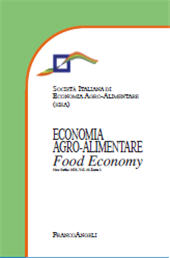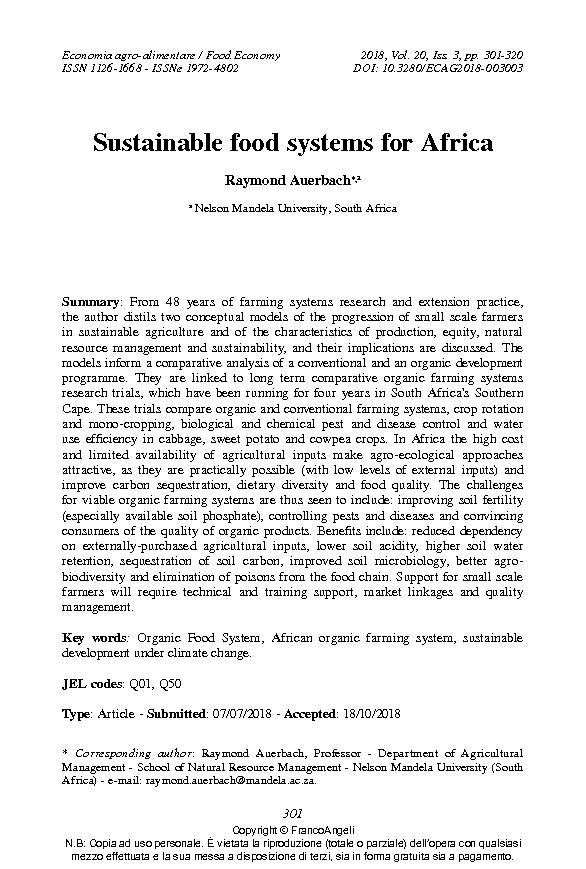Sustainable food systems for Africa
301-320 p.
From 48 years of farming systems research and extension practice, the author distils two conceptual models of the progression of small scale farmers in sustainable agriculture and of the characteristics of production, equity, natural resource management and sustainability, and their implications are discussed. The models inform a comparative analysis of a conventional and an organic development programme. They are linked to long term comparative organic farming systems research trials, which have been running for four years in South Africa's Southern Cape. These trials compare organic and conventional farming systems, crop rotation and mono-cropping, biological and chemical pest and disease control and water use efficiency in cabbage, sweet potato and cowpea crops. In Africa the high cost and limited availability of agricultural inputs make agro-ecological approaches attractive, as they are practically possible (with low levels of external inputs) and improve carbon sequestration,
dietary diversity and food quality. The challenges for viable organic farming systems are thus seen to include: improving soil fertility (especially available soil phosphate), controlling pests and diseases and convincing consumers of the quality of organic products. Benefits include: reduced dependency on externally-purchased agricultural inputs, lower soil acidity, higher soil water retention, sequestration of soil carbon, improved soil microbiology, better agrobiodiversity and elimination of poisons from the food chain. Support for small scale farmers will require technical and training support, market linkages and quality management. [Publisher's text].
Is part of
Economia agro-alimentare : XX, 3, 2018-
Articles from the same issue (available individually)
-
Information
ISSN: 1972-4802
DISCIPLINES
KEYWORDS
- Organic Food System, African organic farming system, sustainable development under climate change



